MercoPress. South Atlantic News Agency
Tag: China
-
Wednesday, November 23rd 2016 - 10:59 UTC
Partnership with Latin America and the Caribbean strategic for China
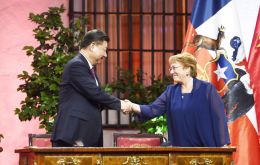
Chinese President said that his country's alliance with Latin America and Caribbean countries was of “strategic” importance as he opened the Economic Commission for Latin America and the Caribbean (ECLAC) Media Leaders Summit in Santiago.
-
Friday, November 18th 2016 - 08:27 UTC
Trump-nomics: Speculation iPhones could soon be manufactured in the US

iPhones might soon be made in the U.S., a result of Donald Trump’s win on Election Day, according to Nikkei Asian Review report. Hon Hai Precision Industry, also known as Foxconn Technology Group, a main Apple assembler, has allegedly been looking into the possibility of making iPhones in the United States, sources revealed to Nikkei.
-
Wednesday, November 16th 2016 - 16:59 UTC
A Troubling New President for Interpol
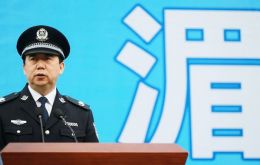
The following editorial was published by The New York Times - Interpol, the international law enforcement agency, has had a history of allowing its international database of fugitives to be used by authoritarian governments to persecute dissidents and critics. It is therefore deeply troubling that a senior Chinese security official will become the organization’s next president.
-
Tuesday, November 8th 2016 - 14:50 UTC
Something is happening in China: new Finance and State Security ministers
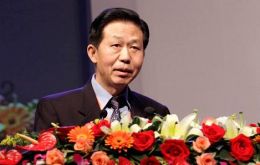
China appointed a new finance minister on Monday who is expected to maintain an expansionary fiscal policy and push reforms to put a lid on rising debt levels in the economy. Xiao Jie, a former tax chief and Minister of Finance deputy minister, was named minister of finance, the official Xinhua news agency said on Monday.
-
Tuesday, October 25th 2016 - 10:29 UTC
Macri and Vazquez agree that the trade approach to China should be done from Mercosur

Argentine president Mauricio Macri promised his Uruguayan peer Tabare Vazquez to look into the draft of a Uruguay/China free trade deal, and expressed their deep concern about political events in Venezuela suggesting that under the current circumstances the Nicolas Maduro government cannot be considered a member of Mercosur.
-
Monday, October 24th 2016 - 18:11 UTC
First Mercosur test for Uruguay´s free trade agreement negotiations with China

Uruguay and Argentina, and their cabinets will be meeting this Monday in Buenos Aires to address a bilateral agenda, which was agreed long before hand, but the real issue will not necessarily be trade, dredging canals, pulp mills, customs or facilitating people's movement, but rather the negotiations for a free trade agreement which supposedly Uruguay is about to begin discussing with China.
-
Monday, October 10th 2016 - 23:13 UTC
Global debt reached 225% of world GDP; concern with private debt buildup in China and Brazil

The world is swimming in a record US$152 trillion in debt, the IMF said on Wednesday, even as the institution encourages some countries to spend more to boost flagging growth if they can afford it. Global debt, both public and private, reached 225% of global economic output last year, up from about 200% in 2002, the IMF said in its new Fiscal Monitor report.
-
Monday, October 3rd 2016 - 07:54 UTC
Yuan becomes global reserve currency but China will have to relax capital controls and the exchange rate
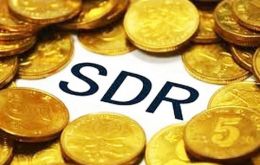
The Chinese currency Yuan entered a new phase in its journey to become more important to the world economy: starting on Saturday the Yuan is officially a member of the International Monetary Fund’s basket of global reserve currencies. Together, this group of currencies, known as Special Drawing Rights (SDR), forms a kind of pseudo-currency—used only by the IMF—to supplement countries’ official reserves.
-
Tuesday, September 6th 2016 - 17:17 UTC
Meirelles invites foreign investors to take advantage of US$ 269bn opportunities

Brazil's economy could grow 2.5% in 2018 and expand at an even faster rate over the following years, Finance Minister Henrique Meirelles said at a seminar in Shanghai.
-
Monday, September 5th 2016 - 09:09 UTC
Macri targets Chinese tourists; no need of a visa to visit Argentina
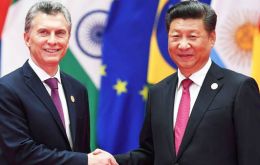
Argentine president Mauricio Macri announced in China that besides boosting and balancing bilateral trade and confirming the infrastructure and energy deals reached by his predecessor, Chinese tourists will no longer need visas to visit Argentina.
